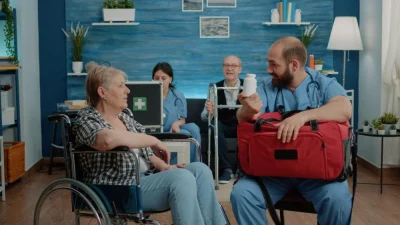The Psychology Behind Relapse: Causes and Prevention Strategies
Warning: Undefined variable $post in /home/dietofli/public_html/wp-content/plugins/code-snippets/php/snippet-ops.php(584) : eval()'d code on line 3
Warning: Attempt to read property "ID" on null in /home/dietofli/public_html/wp-content/plugins/code-snippets/php/snippet-ops.php(584) : eval()'d code on line 3
The estimated reading time is 3 minutes
Warning: Undefined variable $post in /home/dietofli/public_html/wp-content/plugins/oxygen/component-framework/components/classes/code-block.class.php(115) : eval()'d code on line 3
Warning: Attempt to read property "ID" on null in /home/dietofli/public_html/wp-content/plugins/oxygen/component-framework/components/classes/code-block.class.php(115) : eval()'d code on line 3

Introduction
Relapse is a common part of the recovery journey for many individuals battling substance use disorders. Understanding the psychological factors that contribute to relapse is crucial in developing effective prevention strategies. This article delves into the causes of relapse and outlines strategies to prevent it, offering hope and guidance for those on the path to recovery.
Understanding Relapse
What is Relapse?
Relapse refers to the return to substance use after a period of abstinence. It's not just a singular event but a process influenced by various psychological, social, and environmental factors.
According to the National Institute on Drug Abuse, relapse rates for substance use disorders are estimated to be between 40% to 60%. This statistic highlights the need for effective relapse prevention strategies.
Psychological Causes of Relapse
Triggering Emotions
Emotional triggers, such as stress, anxiety, and depression, play a significant role in relapse. Individuals often turn to substances as a coping mechanism to deal with negative emotions.
Environmental Triggers
Places, people, and situations associated with past substance use can trigger cravings. These environmental cues can be powerful, especially in the early stages of recovery.
Cognitive Factors
Thought patterns, such as rationalizing or minimizing the consequences of substance use, can lead to relapse. Breaking these cognitive cycles is essential for maintaining sobriety.
Prevention Strategies
Developing Healthy Coping Mechanisms
Learning to manage emotions through healthy coping strategies like mindfulness, meditation, or exercise is crucial. These practices help in dealing with stress without resorting to substance use.
Building a Supportive Network
Strong social support from family, friends, and support groups like Alcoholics Anonymous or Narcotics Anonymous can provide encouragement and accountability, which are vital in preventing relapse.
Cognitive Behavioral Therapy (CBT)
CBT is an effective therapeutic approach that helps modify negative thought patterns and behaviors associated with substance use. It equips individuals with strategies to counteract cognitive distortions that lead to relapse.
Relapse as a Learning Opportunity
Not a Sign of Failure
It's important to understand that relapse is not a sign of failure but a step in the journey of recovery. Each relapse can provide valuable insights into the triggers and challenges that need to be addressed.
Adapting Recovery Plans
Learning from relapse involves revisiting and adapting recovery plans. This might include increasing therapy sessions, joining new support groups, or trying new coping mechanisms.
Strategies for Long-Term Recovery
Lifestyle Changes
Adopting a healthy lifestyle, including regular exercise, balanced nutrition, and adequate sleep, can bolster overall well-being and resilience against relapse.
Ongoing Therapy and Support
Continuous engagement in therapy and support groups provides a safety net that can help address challenges and prevent relapse.
Developing New Interests and Hobbies
Engaging in new activities and hobbies can provide a sense of purpose and fulfillment, reducing the temptation to return to substance use.
Conclusion
Relapse is a complex phenomenon influenced by various psychological factors. Understanding these factors and employing effective prevention strategies can significantly reduce the risk of relapse. Recovery is a journey of continuous learning and growth, and each step, including relapse, offers valuable lessons. With the right support and strategies, long-term recovery is a realistic and achievable goal.
References
- National Institute on Drug Abuse. (n.d.). "Relapse Rates for Drug Addictions."
- Psychology Today. (Year). "The Psychology of Relapse."
- American Psychological Association. (Year). "Strategies to Prevent Relapse."














